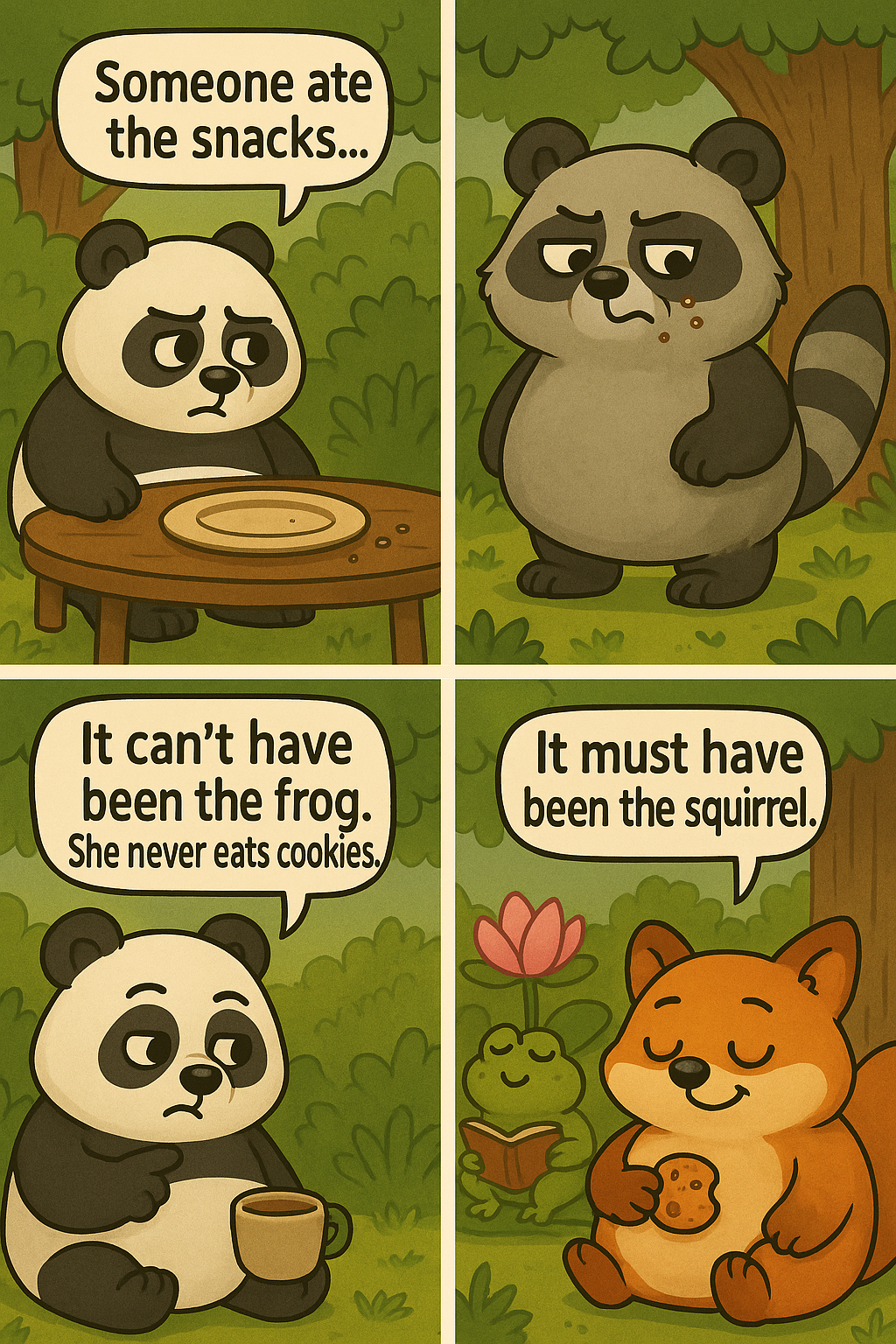🎯 Obiettivo della lezione
In questa lezione imparerai a usare must, might e can’t 📖 per fare deduzioni logiche in inglese.
Capirai quanto sei sicuro di qualcosa 🧠 e riuscirai a esprimere i tuoi pensieri con chiarezza, anche senza conoscere tutti i fatti! 🚀
🌟 Cosa significano “must”, “might” e “can’t” in deduzione?
Must ➔ Sei quasi sicuro che qualcosa sia vero ✅
Might ➔ È possibile, ma non certo 🤔
Can’t ➔ Sei quasi sicuro che qualcosa non sia vero ❌
🔍 Come si usano?
👉 La formula è semplice:
Soggetto + must / might / can’t + verbo base
| Modale | Certezza | Esempio |
|---|---|---|
| must | quasi sicuro | She must be tired. 🛌 |
| might | forse sì, forse no | He might be at the gym. 🏋️♂️ |
| can’t | quasi sicuro che è falso | They can’t be at home. 🏡❌ |
💡 Non serve mai usare “to” dopo il modale: si dice must be, might come, can’t know.
🔍 Esempi pratici
✅ Must → deduzione molto sicura
- He must be very rich. ➔ Deve essere molto ricco. 💰
- They must know each other. ➔ Devono conoscersi. 🤝
- She must be tired after work. ➔ Deve essere stanca dopo il lavoro. 🛏️
🤔 Might → è possibile, ma non certo
- She might come to the party. ➔ Potrebbe venire alla festa. 🎉
- It might rain later. ➔ Potrebbe piovere più tardi. ☔
- They might be waiting for us. ➔ Potrebbero starci aspettando. ⏳
❌ Can’t → quasi sicuro che NON è vero
- He can’t be 50 years old! ➔ Non può avere 50 anni! 😮
- They can’t be serious. ➔ Non possono essere seri. 🤨
- She can’t be at home — the lights are off! ➔ Non può essere a casa: le luci sono spente. 💡
🧩 Schema riassuntivo – Must / Might / Can’t
| Modale | Quando usarlo | Esempio |
|---|---|---|
| must | quasi sicuro che è vero | He must be tired after the trip. 🛌✈️ |
| might | forse vero, forse no | She might call you later. ☎️ |
| can’t | quasi sicuro che è falso | They can’t be at the office now. 🏢❌ |
❓ Dubbi chiariti subito
- Devo usare “to”?
➔ No! Mai. Si dice “must be”, “might go”, “can’t know”. - È valido per presente o passato?
➔ Questa lezione è sul presente. Il passato ha regole diverse (es: must have + participio). - Cambia con he/she/it?
➔ No! I modali sono uguali per tutti i soggetti.
❌ Errori comuni da evitare
- ❌ He must to be tired. → ✅ He must be tired.
- ❌ She might to come. → ✅ She might come.
- ❌ They can’t to know. → ✅ They can’t know.
👉 Ricorda sempre: modale + verbo base, senza “to”!
🧠 Trucchetto finale per non sbagliare
Must = sì quasi sicuro
Might = forse
Can’t = no quasi sicuro
Una semplice linea mentale per capire al volo quanta certezza stai esprimendo.
📝 Esercitati in autonomia adesso!
✍️ Scrivi 5 frasi in inglese
🤖 La nostra IA le corregge al volo!
⚡️ È gratis e super veloce!
Usa must, might e can’t per parlare di ciò che pensi sia vero, possibile o impossibile!
ALCUNI ESEMPI:
He must be the new teacher. 👨🏫
They can’t be serious about that plan. 🤨
She might be working right now. 💻
He must be tired after that match. ⚽
It can’t be her — she left! 👋
👉 CLICCA QUI SOTTO, INSERISCI LE TUE FRASI
e L’IA TE LE CORREGGE!
